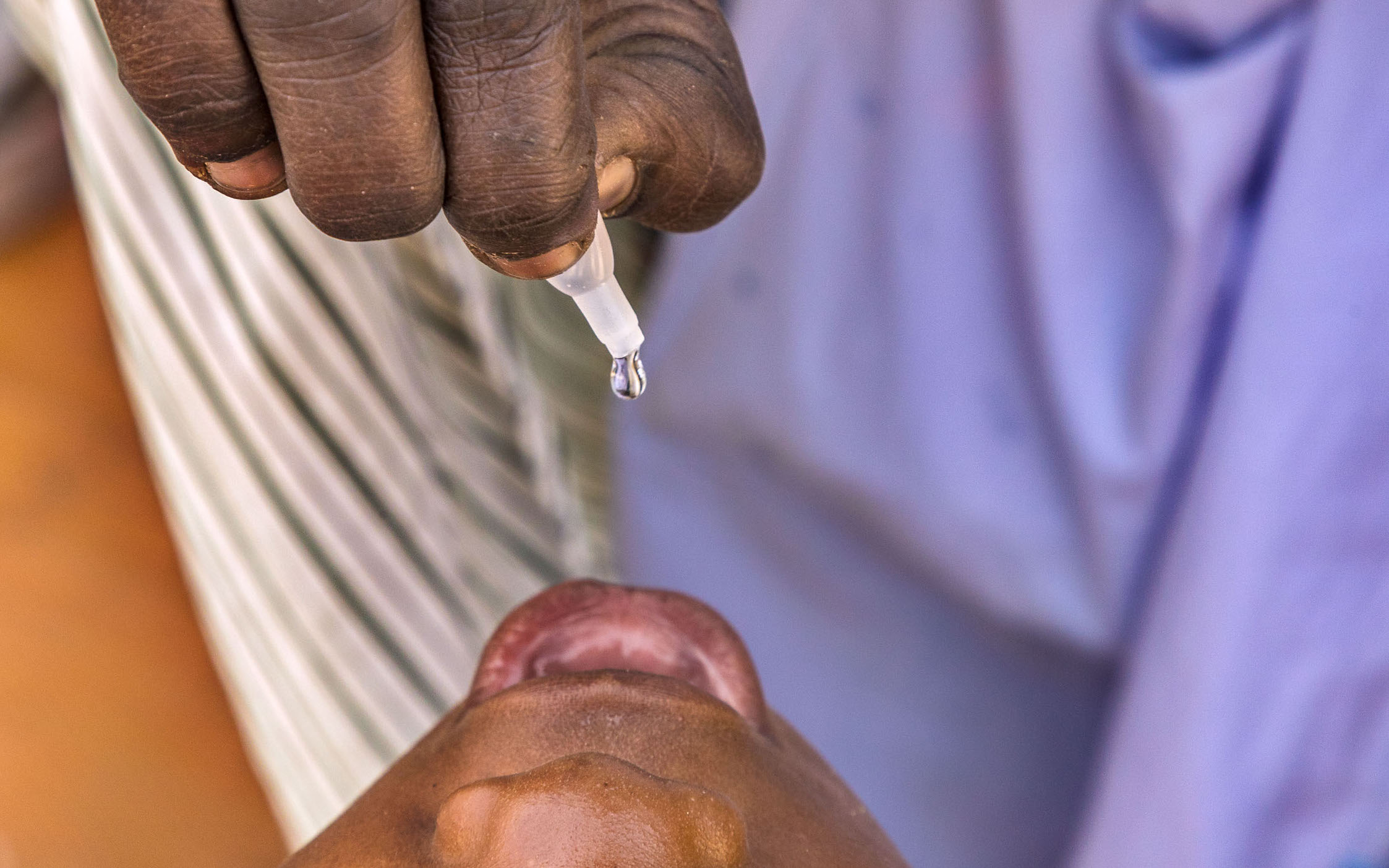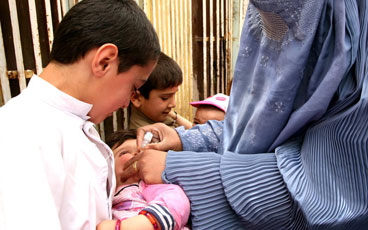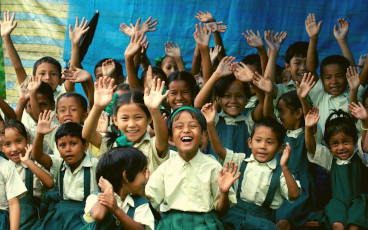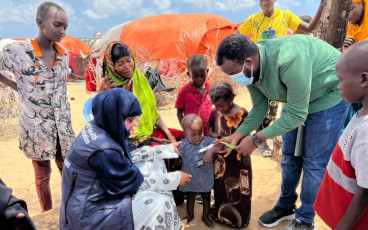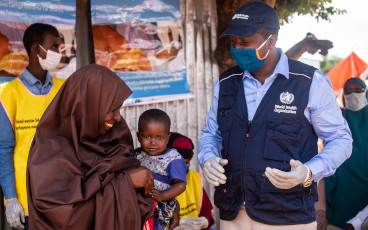How To Certify A Region As Wild Polio Free
Professor Rose Leke on polio eradication, gender and women in science.
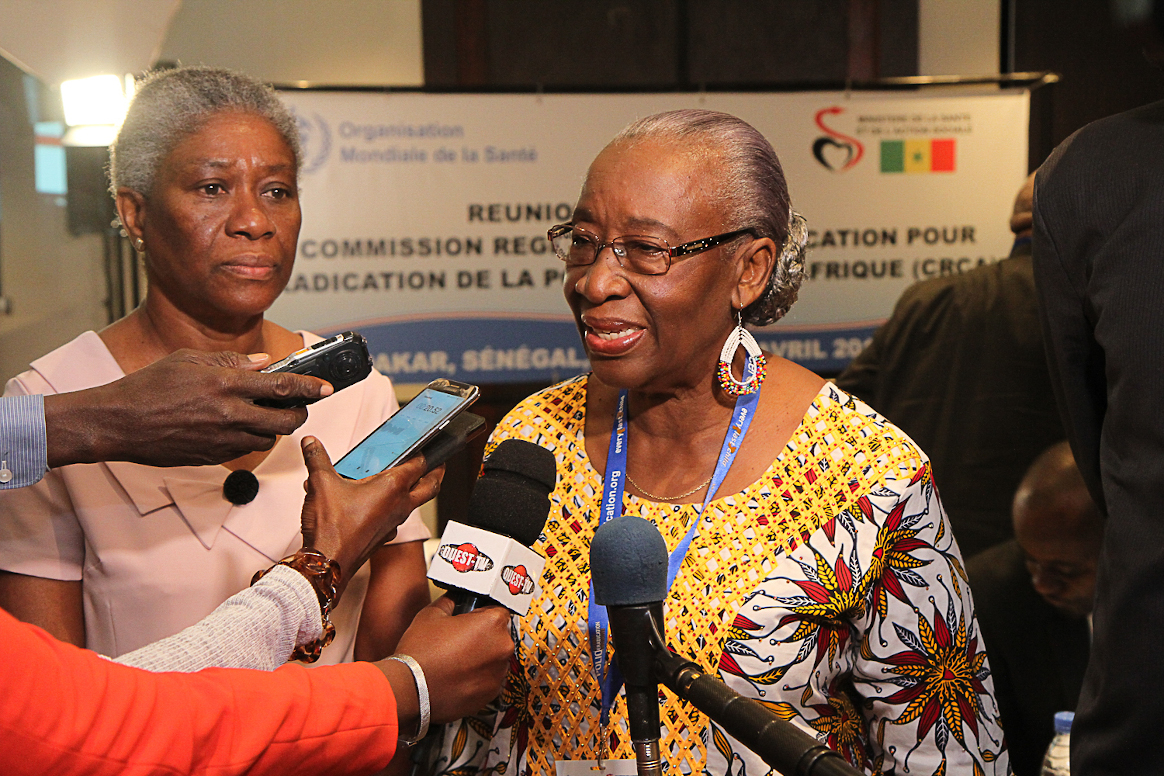
After the World Health Assembly passed a resolution to eradicate polio worldwide in 1988, the Global Certification Commission led the way in establishing a formal certification process, asking each of the six WHO regions to set up a Regional Certification Commission. Then in 1996, the WHO Regional Director for Africa created the Africa Regional Certification Commission (ARCC) for Polio Eradication: a 16-person independent body tasked with overseeing this process, and later on containment activities in the African region.
Professor Rose Leke, an infectious disease specialist, has been the chairperson of the ARCC since it was set up in 1998. A trailblazer for women in global health, Leke has fought throughout her career to improve women’s representation in science and global health leadership. In 2018, she was one of nine women honored with a Heroine of Health award, recognizing her outstanding contribution to health care.
Stopping the ‘havoc’ of polio in Africa
Professors Leke explains her motivation to join the polio eradication cause, “When I was invited to be part of the ARCC in 1998, I was not involved in any polio-related work. But I could see the havoc that polio was reaping on the continent. I had a nephew who was paralyzed from polio and suffered brain damage, and another relative who contracted polio and continues to inspire me. Back then, you saw so many paralyzed young people on the streets. You don’t see that today.”
Ridding the African continent of wild poliovirus is a huge achievement, many years in the making. Nigeria, the last bastion of the wild virus, proved a particularly tough setting in which to vaccinate every child and ensure that no trace of the virus remained.
Professor Leke reflects, “It’s been such a long road. When Nigeria didn’t report any cases of wild polio for two years between 2014 to 2016, we were apprehensive but satisfied. We were so close to eradication as a region, everything was going so well, and then wild polio was reported again in Nigeria in August 2016, and certification had to go on the back burner.”
“The Nigerian response to their outbreaks has been extraordinary. Everyone is committed and highly involved. In Sokoto and Kano states, where I was recently for a field verification visit, and in all other states, everyone – from government officials, traditional leaders, health staff and field teams, community health workers and informants, polio survivors to traditional birth attendants – was heavily engaged in the response. The innovative technologies that have emerged have similarly been incredible. The Nigerian Emergency Operations Centre is a well-coordinated structure that is behind Nigeria’s success. Other disease programs in Africa are learning from this.”
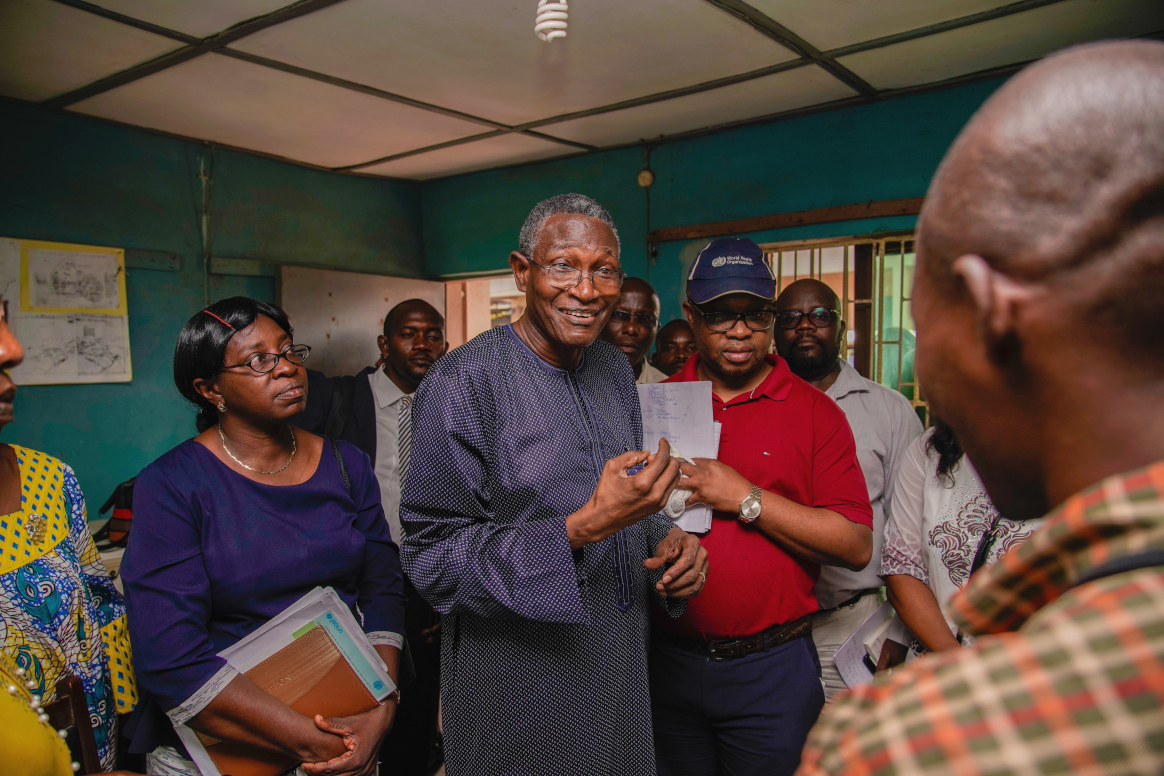
Personal commitment to end polio
Professor Leke never lost her drive to end polio, even during difficult years and despite the tough choices her role sometimes presented.
“When we started, we were aiming for wild polio to be eradicated by 2000; the thought of this success really kept me motivated and still does. At times it has been a huge sacrifice; as Temporary Advisers, ARCC members are not paid, and I’ve sometimes given up consultancies to do this work. My husband, children and grandchildren will tell you, there was a huge amount of traveling and many meetings. But I don’t regret the time spent for a moment on such a cause.”
“When Dr Moeti was appointed as WHO Africa Regional Director in 2011, this was further motivation to continue: I wanted to support a fellow woman. In the beginning, I was the only female in the Global Certification Commission. The commission has addressed this imbalance and we are now two females out of the six members. We need more women in senior positions on the African continent.”
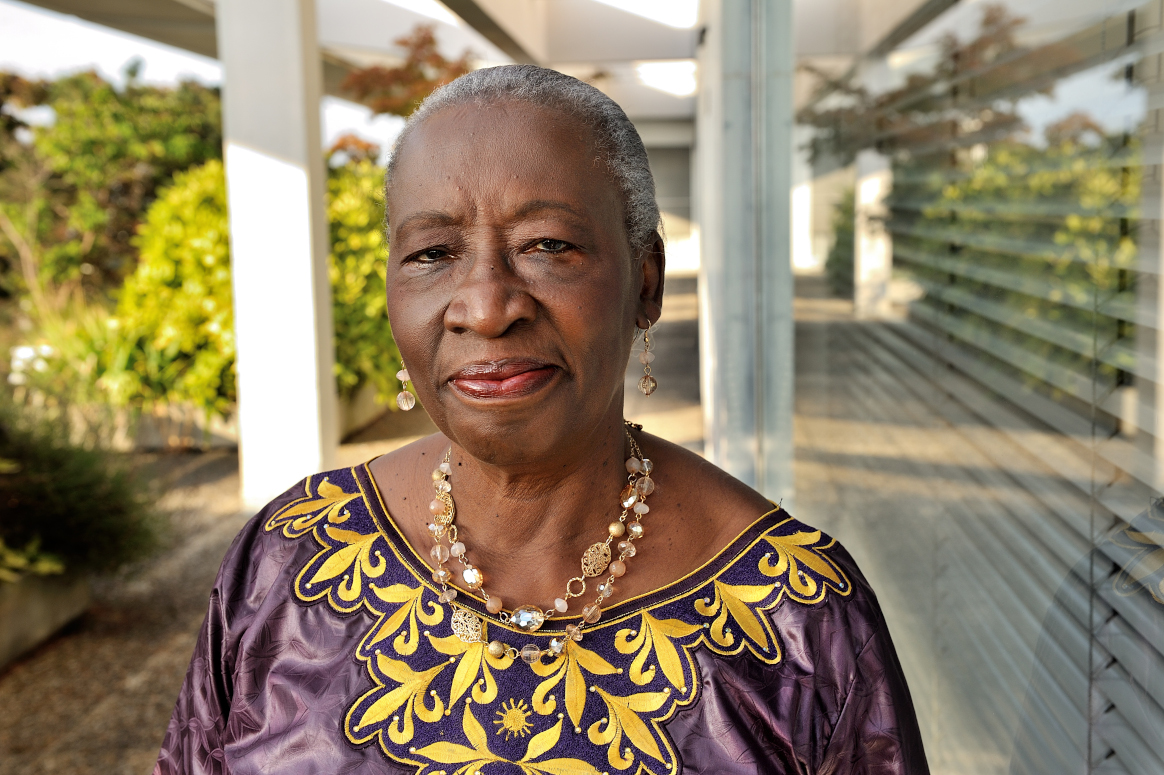
Fighting for gender equality in global health and science
In 2011, Professor Leke won the Kwame Nkrumah Award for the best female scientist in Central Africa for her research on malaria. As part of her acceptance of the award, she took a pledge “to help promote the participation of women in science in Cameroon.”
Within a year, she had helped set up HIGHER Women, a mentoring programme for senior female scientists to deliver hard and soft skills training to their early career counterparts. To support the programme, Professor Leke contributed some of her own funds.
Professor Leke says, “As a woman I encountered blocks on the way during my career – at times men asked me to leave the laboratory space I was working in.”
“Science can be a pyramid – there are many early women researchers, but far fewer at the top of the field. Research and academia have a ‘publish or perish’ culture which disadvantages women who have responsibilities outside of the lab – such as raising a family.”
Professor Leke has continually used her position to promote women in science and global health, even sharing her favorite motivational track about women’s empowerment.
Whilst great progress towards gender balance has been made since she started her career, Professor Leke is firm in noting that there is more to do. In the African regional polio programme, women still lead only a small number of national committees.
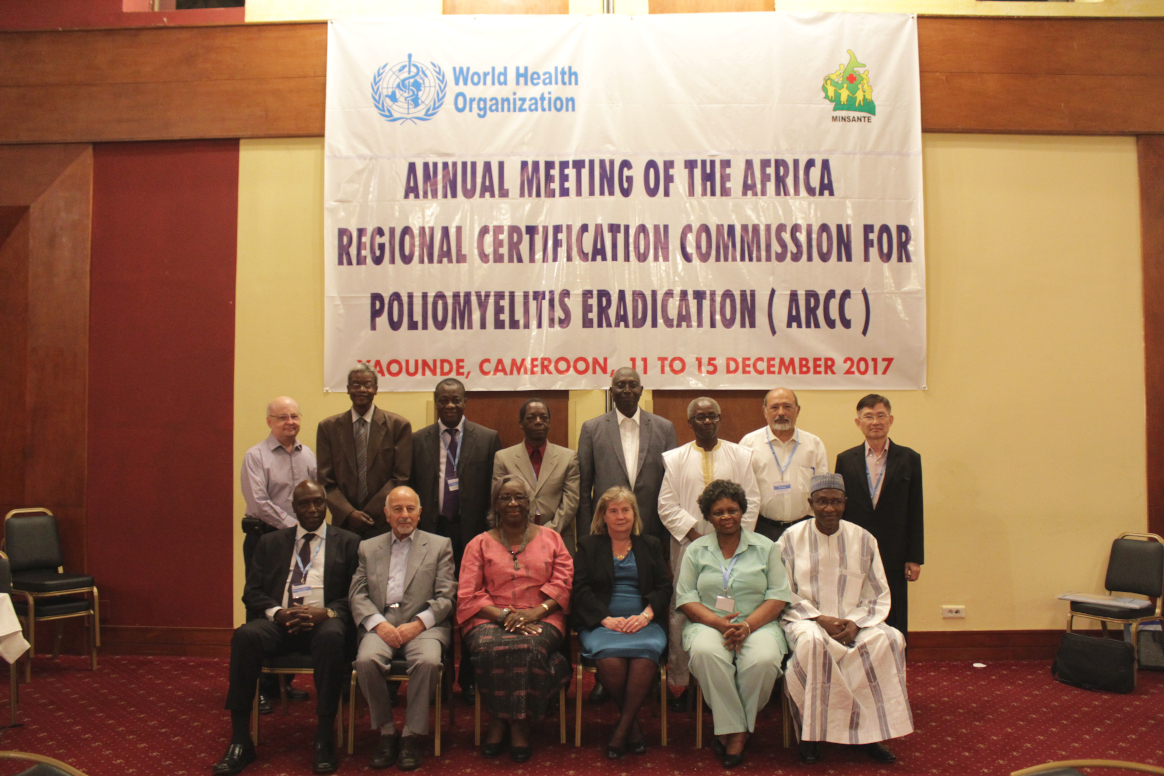
A lasting legacy
Professor Leke is proud of the public health legacy that the polio eradication programme will leave in the African region. She says, “The polio response has brought many skilled technicians into Africa’s health systems. The GPEI paved the way for working closely with traditional healers and community leaders and has really helped to strengthen the systems that report on other diseases. The polio laboratory network is being used for other diseases, giving capacity in the region for doing all sorts of other diagnostics. You’ll find the one person in the health center who was there for polio is reporting on many other diseases.”
“After we declare Africa as free of the wild poliovirus, the ARCC will work with countries to ensure they keep up good quality surveillance, and improve routine immunization, keeping population immunity as high as possible. We will also continue to guide countries in continuing to monitor population immunity to prevent importations of wild poliovirus from outside the African region, while ensuring that the threat of circulating vaccine derived polio viruses (cVDPVs) is addressed.”
“Our work continues until all forms of polio have been eradicated globally.”
Read more from Professor Leke on the Kick Polio Out Of Africa site.



